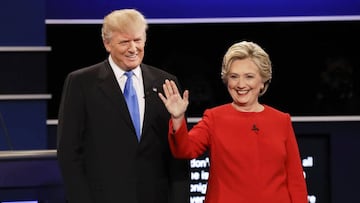How can a candidate win the popular vote but lose the election? The curious case of Hillary Clinton in 2016
A limp campaign against a supercharged Trump resulted in one of the great electoral upsets, despite Clinton winning a million more votes.


The 2016 presidential election presented a striking paradox: Hillary Clinton won the popular vote by nearly 2.9 million votes, yet lost the presidency to Donald Trump.
Follow AS’s live coverage of Election Day and the count in swing states
- Pennsylvania US Election Results 2024 live
- Wisconsin US Election Results 2024 live
- Georgia US Election Results 2024 live
- Nevada US Election Results 2024 live
- Michigan US Election Results 2024 live
- North Carolina US Election Results 2024 live
- Arizona US Election Results 2024 live
Clinton received 65,844,610 votes (48.2% of the total), while Trump garnered 62,979,636 votes (46.1%). Despite this significant popular vote advantage, Trump secured 304 electoral votes to Clinton’s 227, comfortably surpassing the 270 electoral college votes needed to win the election.
This election system quirk sets the US apart from many other democratic nations; a legacy of the battle between the federalists and the anti-federalists when deciding how to apply the US constitution in the nation’s formative years.
Why the popular vote doesn’t matter
The Electoral College system can produce such discrepancies because it essentially creates 51 separate elections (50 states plus the District of Columbia) rather than one national election. A candidate can win several states by large margins, racking up popular votes, but still lose the election by narrowly losing in a few key swing states.
A further factor that can contribute to the outcomes seen in 2000 and 2016 is that all but two states operate a winner-takes-all system when handing out their electoral votes (Maine and Nebraska are the exceptions).
As a result, candidates only need to win a state by a fine margin in the popular vote to see it translate into all the electoral college votes.
Republicans consistently win elections without winning the popular vote
Related stories
This century alone, two out of the five US presidential elections have been won by the candidate who came second in the popular vote. Throughout history this has only happened five times, with Republicans winning four of these.
The most recent election win without the popular vote was in 2000. Republican George W Bush beat Al Gore to the presidency with 271 electoral votes, despite over 500,000 more people voting for Gore.


Complete your personal details to comment